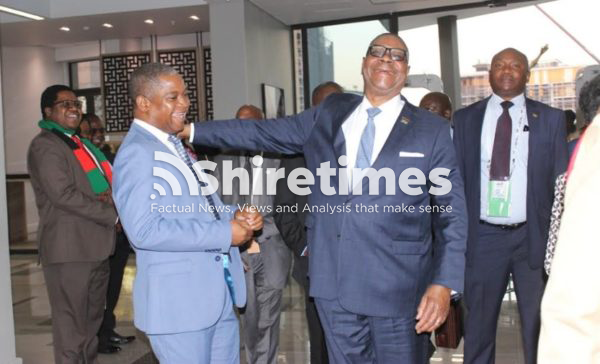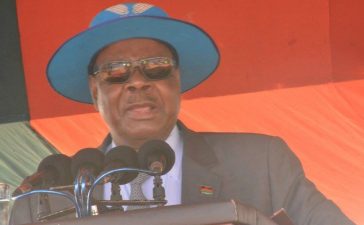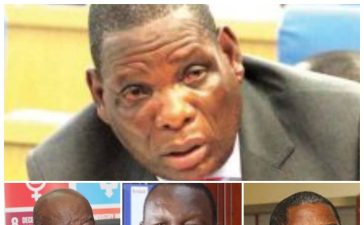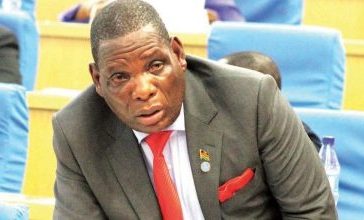Towards the end of July last year, the Malawi Police Service arrested the then Malawi Energy Regulatory Authority (MERA) Chief Executive Officer, Collins Magalasi alongside Bright Mbewe from the procurement Office and MERA Spokesperson Patrick Maulidi.
That particular arrest was founded on the following issue:
In 2019, MERA arrived at a decision to procure a new Fuel Testing Van. Its use, importance and necessity will be explained later in this writeup. In the meantime, let us peruse through the scandal itself.
Pursuant to the resolution above, on 3rd April 2019, MERA awarded a procurement contract to City Motors who indicated that they would procure the van on behalf of MERA at a cost of Seven Hundred and Four (K704m) Million Malawi Kwacha.
Subsequently, on 7th May 2019, MERA paid Five Hundred and Sixty-Three Million and Two Hundred Kwacha (MK563, 200,000.00) ‘to City Motors’ as down payment for the procurement contract sum. This was an 80 percent advance payment.
Despite this payment, which was made in April 2019, City Motors never procured and supplied the van to MERA throughout 2019. Shire Times has discovered that the down payment money which was purportedly transferred to City Motors was cut back by Collins Magalasi who was transacting on behalf of some mortals within the then ruling elite.
In February 2020 (on the 3rd), the High Court of Malawi delivered a ruling on the Presidential Election case in which a Fresh Presidential Election was ordered. This was a shocker ruling even to the then ruling DPP who later appealed against the High Court ruling.
The proceedings in the appeal court were indicative that DPP would not succeed in its application. All indications were pointing to an unavoidable fresh poll in which DPP itself saw little chances of pulling through.
When it came abundantly clear to the elite thieves that the criminal syndicate called DPP was about to lose power in Fresh Presidential Election, conscience visited Magalasi who recommended to his bosses that they must at least purchase the van whose 80% down payment they had already made.
Thus, almost a year later, on 17th April 2020, MERA paid MK140.8 million to City Motors translating to the remaining 20% chunk of the total contract sum. With this sum, City Motors managed to purchase a cheap van contrary to the one that was initially agreed upon in the contract agreement. The contract indicated that the van would be an Iveco Daily Panel but what has been delivered in the same April following the MK140.8 million payment is a Mitsubishi van.
It was then established that Magalasi and crew were in a fraudulent transaction. To begin with, they took back, from City Motors, almost 80% of the initial MK563.2 million to DPP and individuals. City Motors got about 20% of the down payment as their token of appreciation for ‘cleaning’ the money.
It was the Mk140.8 million which City Motors later used to procure a van. The corruption suspicions that surrounded this transaction is what resulted into the arrest of the then MERA CEO, MERA Procurement Officer and MERA Spokesperson. As to why City Motors officials were not yet arrested, it is the menu for another day.
THE FUEL TESING VAN
Climate enthusiasts across the globe are fighting against greenhouse gas emissions. These greenhouse gas emissions which adversely impact on climate welfare are from different sources including fuel combustions from cars, generators and all fuel-run machinery.
Fuel production across the globe has, therefore, been subjected to strict standards that conform to particular standards aimed at minimizing the content of such dangerous gases. Controlling the composition of vehicle fuel has been scaled to reduce pollutant emissions from combustion and, more importantly, enable the use of advanced emission control technologies.
However, these standards could be bypassed in some fuel productions and supply chains. Thus, countries across the world are encouraged, by international policy held by the United Nations (UN), to regulate the standards of fuel that gets consumed in their respective countries.
Such regulatory authority in Malawi falls under the MERA. In keeping with the UN policy, the Government of Malawi through MERA regulates the standard of fuel that enters the country for distribution to consumers. A laboratory testing kit is therefore necessary for MERA to undertake this task, hence the requirement to purchase the Fuel Testing Van which is, in essence, a mobile laboratory that tests the inbound fuel.













